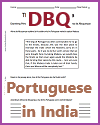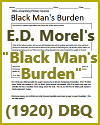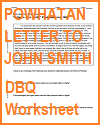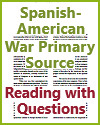The Witches of Salem |
|
The hysteria grew, in large measure because the court
permitted witnesses to testify that they had seen the accused as
spirits or in visions. Such "spectral evidence" could
neither be verified nor made subject to objective examination.
By the fall of 1692, 20 victims, including several men, had been
executed, and more than 100 others were in jail (where another
five victims died) – among them some of the town's most
prominent citizens. When the charges threatened to spread
beyond Salem, ministers throughout the colony called for an end
to the trials. The governor of the colony agreed. Those
still in jail were later acquitted or given reprieves. Although an isolated incident, the Salem episode has long
fascinated Americans. Most historians agree that Salem
Village in 1692 experienced a kind of public hysteria, fueled by
a genuine belief in the existence of witchcraft. While
some of the girls may have been acting, many responsible adults
became caught up in the frenzy as well. Even more revealing is a closer analysis of the identities of
the accused and the accusers. Salem Village, as much of colonial
New England, was undergoing an economic and political transition
from a largely agrarian, Puritan-dominated community to a more
commercial, secular society. Many of the accusers were
representatives of a traditional way of life tied to farming and
the church, whereas a number of the accused witches were members
of a rising commercial class of small shopkeepers and tradesmen.
Salem's obscure struggle for social and political power between
older traditional groups and a newer commercial class was one
repeated in communities throughout American history. It
took a bizarre and deadly detour when its citizens were swept up
by the conviction that the devil was loose in their homes. The Salem witch trials also serve as a dramatic parable of
the deadly consequences of making sensational, but false,
charges. Three hundred years later, we still call false
accusations against a large number of people a "witch hunt." Questions with answers in bold: 1. Salem Village was located in what colony? |
Click here to print this
worksheet. |
 |
|---|
| Colonial Period Books and Films | Colonial Period Learning and Study Games |
| Colonial Period Image Galleries | Colonial Period Outlines and Powerpoints |
| Colonial Period Miscellany | Colonial Period Worksheets |
Text courtesy of the U.S. State Department,
Bureau of International Information Programs, 2005 |


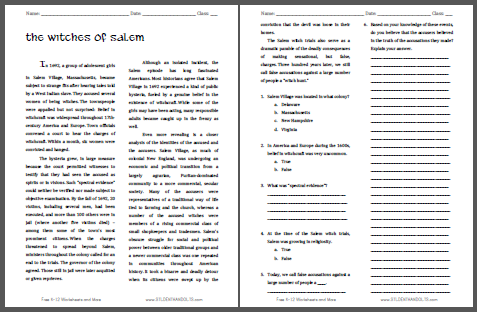 In 1692, a group of adolescent girls in Salem Village,
Massachusetts, became subject to strange fits after hearing
tales told by a West Indian slave. They accused several
women of being witches. The townspeople were appalled but
not surprised: Belief in witchcraft was widespread throughout 17th-century
America and Europe. Town officials convened a court to
hear the charges of witchcraft. Within a month, six women
were convicted and hanged.
In 1692, a group of adolescent girls in Salem Village,
Massachusetts, became subject to strange fits after hearing
tales told by a West Indian slave. They accused several
women of being witches. The townspeople were appalled but
not surprised: Belief in witchcraft was widespread throughout 17th-century
America and Europe. Town officials convened a court to
hear the charges of witchcraft. Within a month, six women
were convicted and hanged.
